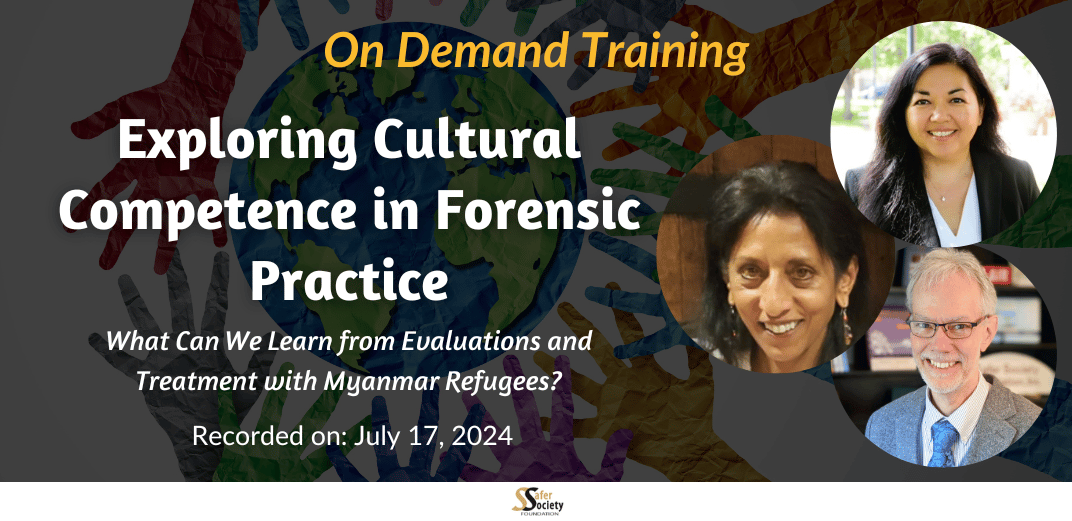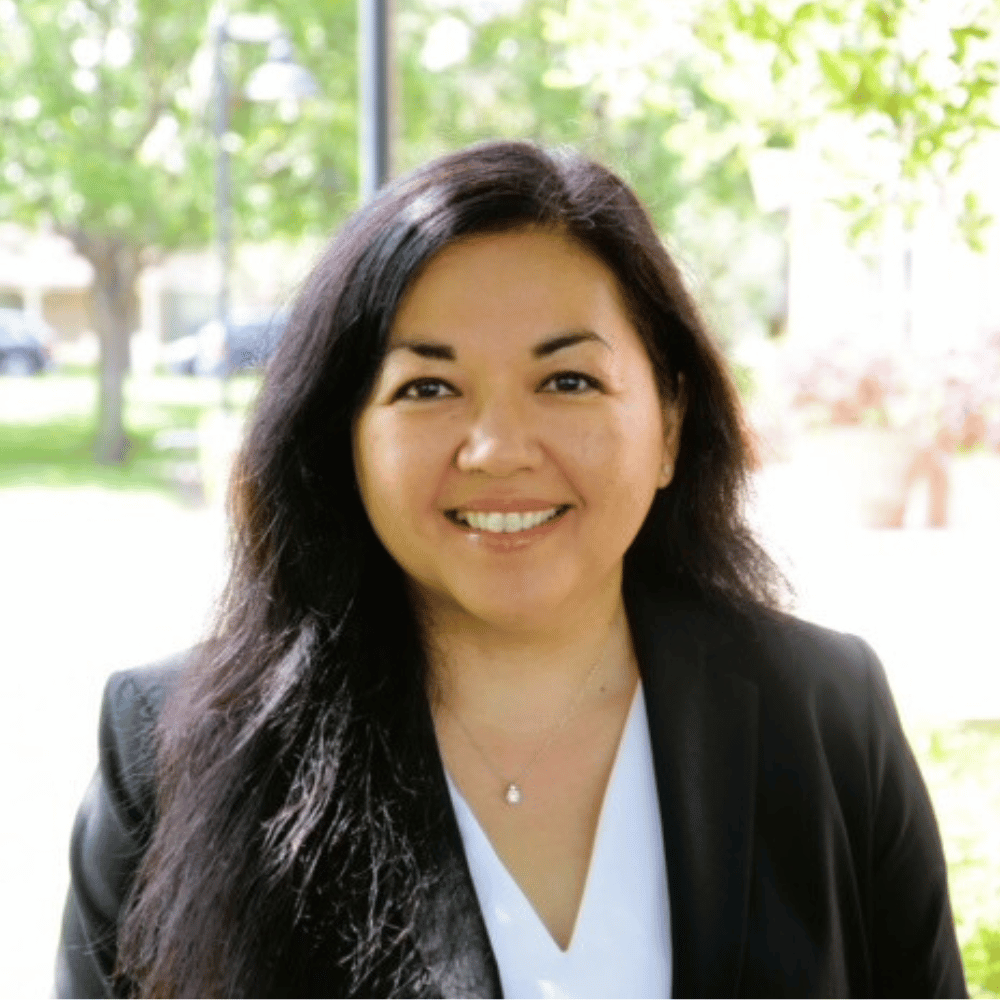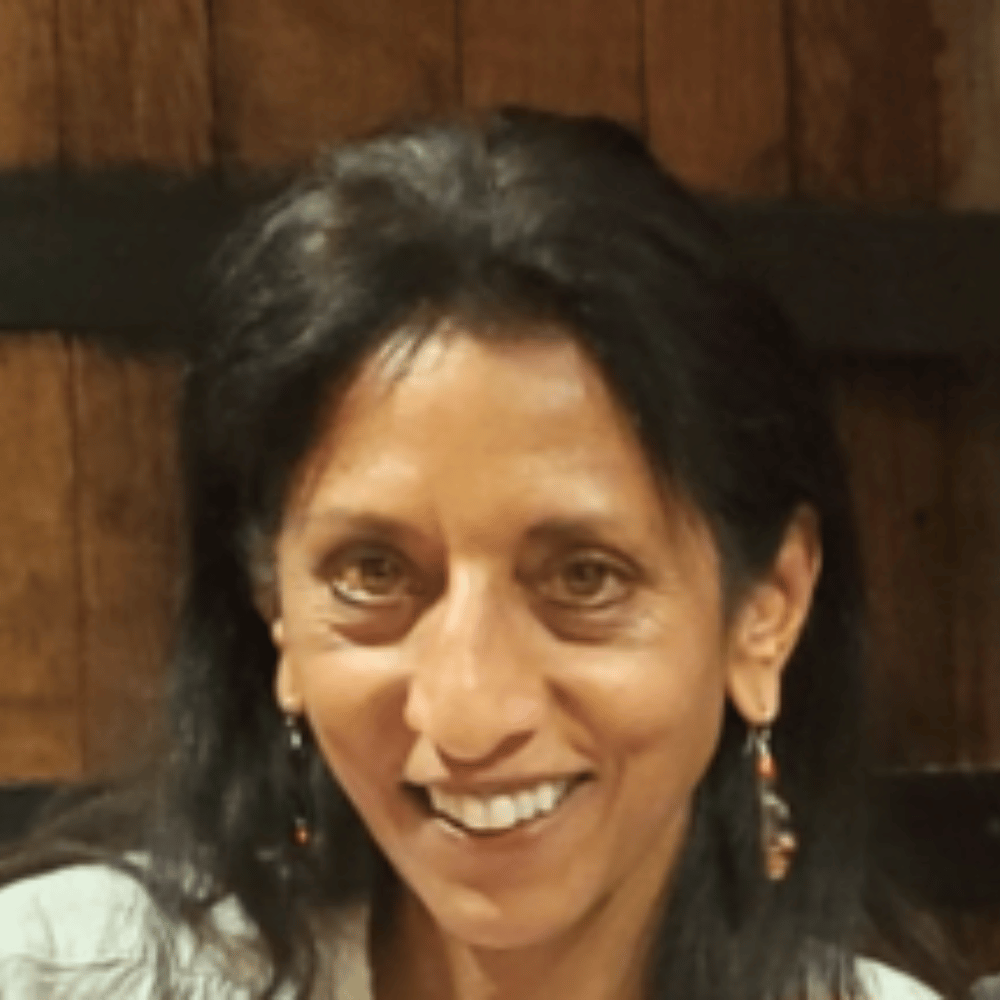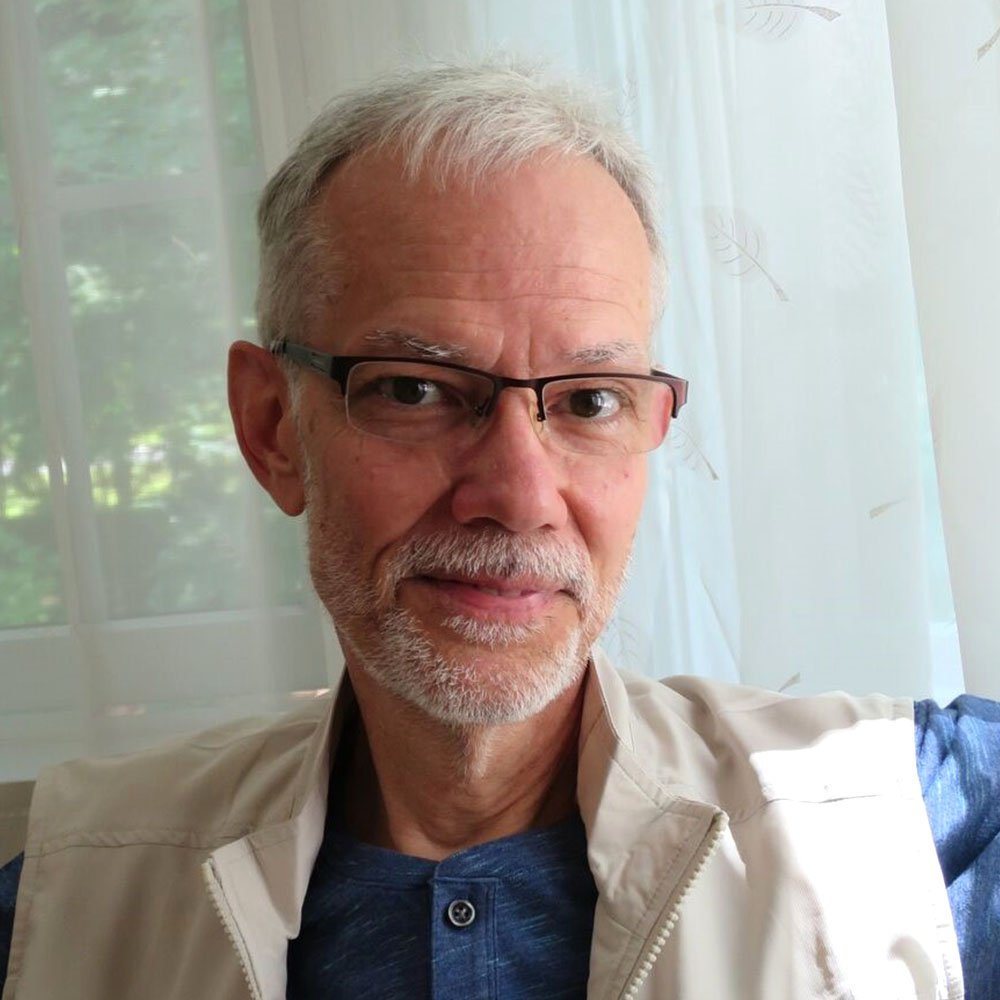
Exploring Cultural Competence in Forensic Practice: What Can We Learn from Evaluations and Treatment with Myanmar Refugees?
Already purchased an On Demand training?
Click here to access your Safer Society On-Demand Training Center account.
Central to this training is the question: “What can we learn from refugees from Myanmar that can inform our forensic work with other clients?”
 This training takes an in-depth look at developing skills for becoming more culturally competent, respectful, and humble within practice using the forensic assessment of refugees from Myanmar as the central example. It aims to equip mental health professionals with the knowledge and skills necessary to navigate the complexities of cross-cultural assessments and interventions, fostering a deeper understanding and respect for diverse cultural backgrounds. With an increasing number of Burmese refugees being treated in various settings, the presenters provide practical strategies for forensic evaluators to understand the cultural backgrounds and experiences of their clients through empathic listening and culturally sensitive approaches.
This training takes an in-depth look at developing skills for becoming more culturally competent, respectful, and humble within practice using the forensic assessment of refugees from Myanmar as the central example. It aims to equip mental health professionals with the knowledge and skills necessary to navigate the complexities of cross-cultural assessments and interventions, fostering a deeper understanding and respect for diverse cultural backgrounds. With an increasing number of Burmese refugees being treated in various settings, the presenters provide practical strategies for forensic evaluators to understand the cultural backgrounds and experiences of their clients through empathic listening and culturally sensitive approaches.
The presenters begin with a brief overview of historical political strife in Myanmar. Emphasis is placed on the role of religion as a cultural script for mental distress. For example, Buddhist beliefs in Dukkha (suffering) and Karma serve as a subconscious script underlying mental pain. Recognizing the unique challenges faced by refugee populations, the training also explores the prevalence of Complex Post-Traumatic Stress Disorder (C-PTSD). Attendees gain insights into the cognitive delays and personality-like traits exhibited by individuals with C-PTSD, which may differ from their mainstream US counterparts. Additionally, the presenters discuss the concept of the “trauma of uncertainty,” highlighting the profound impact of displacement and the refugee experience on mental wellbeing.
The training concludes by exploring implications drawn from effective psychotherapies, such as Motivational Interviewing, and treatment frameworks, such as the Good Lives Model, for working with culturally diverse populations. Attendees gain insights into how these approaches can be adapted and applied to enhance cultural competence in forensic practice.
1) Describe common stressors experienced by individuals who have resettled in a new country, with a particular focus on Myanmar Refugees.
2) Explain how cultural scripts influence perceptions of mental disorders and shape narratives of distress.
3) Understand the concept of “trauma of uncertainty” and its impact on refugee populations.
4) Recognize the importance of understanding trauma narratives within the cultural context of clients.
5) Develop strategies for conducting culturally sensitive forensic evaluations and incorporating cultural competence in treatment settings, including with refugees.
Audience
This training is for professionals who conduct assessments across cultures and with refugees.
Content Level
Who's Presenting

Gangaw Zaw, PhD
Gangaw Zaw received her Ph.D. in Clinical Psychology from Loma Linda University in 2006. She has been an adjunct professor at the University of La Verne and is a full-time forensic psychologist. She currently works for the California Department of State Hospitals conducting sexually violent predator evaluations, a role she has been in since 2010. She also has a private practice specializing in adolescent development, conducting juvenile transfer and re-sentencing evaluations. Dr. Zaw immigrated to the United States with her family from Burma in 1982. Though she did not have the experience as a refugee, she is rooted in her culture and understands life in the US as an immigrant. In her free time, she has studied Buddhism and meditation from Buddhist monks and teachers worldwide.

Shoba Sreenivasan
Shoba Sreenivasan earned a Ph.D. in Clinical Psychology from UCLA in 1986 and thereafter completed a forensic post-doctoral fellowship at USC. She is a Clinical Professor at Keck School of Medicine of USC and worked for the Veterans Administration for 28 years. She is currently a forensic psychologist with the California Department of State Hospitals-Forensic Services Division and has a private forensic psychology practice. She has co-authored Totally American, a motivational book, and authored the Mattie Spyglass series. She has also written numerous scholarly publications and book chapters in the fields of forensic psychology, violence risk assessment, and veterans’ issues.

David Prescott, LICSW, ATSA-F
A mental health practitioner of 40 years, David Prescott is the Director of the Safer Society Continuing Education Center. He is the author and editor of 25 books in the areas of understanding and improving services to at-risk clients. He is best known for his work in the areas of understanding, assessing, and treating sexual violence and trauma. Mr. Prescott is the recipient of the 2014 Distinguished Contribution award from the Association for the Treatment and Prevention of Sexual Abuse (ATSA), the 2018 recipient of the National Adolescent Perpetration Network’s C. Henry Kempe Lifetime Achievement award, and the 2022 recipient of the Fay Honey Knopp Award from the New York State Alliance for the Prevention of Sexual Abuse and New York State ATSA. He also served as ATSA President in 2008-09. Mr. Prescott currently trains and lectures around the world. His published work has been translated into Japanese, Korean, German, French, Polish, and Southern Tutchone. He has served on the editorial boards of four scholarly journals.
